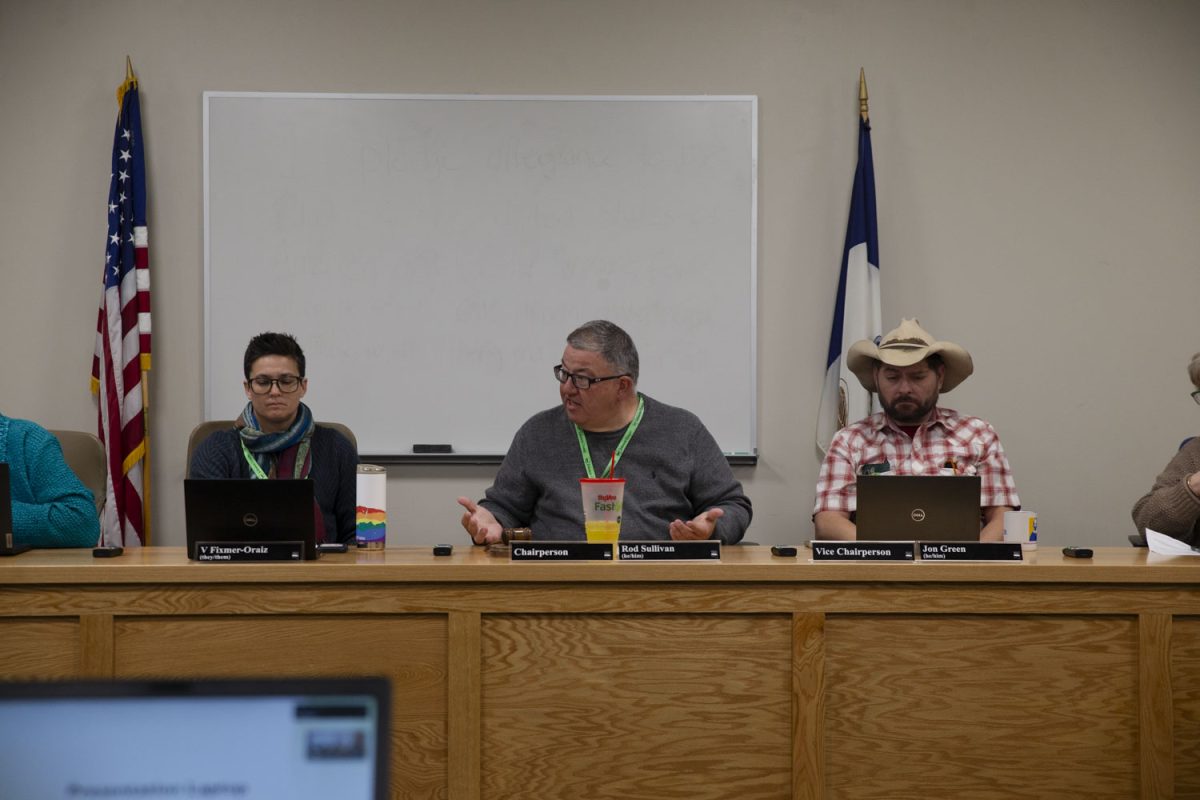Experts say the University of Iowa is “at the forefront” of interpersonal psychotherapy because of its health-care system and hospitals.
WorldCanvass recorded a discussion with a panel of international experts on interpersonal psychotherapy at the Old Capitol Museum on Thursday.
“Interpersonal problems contribute to mental-health problems, and mental-health problems complicate interpersonal relationships,” said Mary Cooper, a psychologist at the conference.
The issues feed each other, she said, and interpersonal-psychotherapy practitioners address the relationships to help their clients with their mental-health problems.
Cooper traveled from Marquette, Mich., to attend the fifth-annual International Society for Interpersonal Psychotherapy Conference at the Sheraton, 210 S. Dubuque St., Thursday through Saturday.
“Usually when there is a large UI conference, we try to coordinate our shows with those,” WorldCanvass producer Katelyn McBride said.
WorldCanvass is a television and radio series produced by International Programs, part of the Office of the Provost, at the University of Iowa.
The Hawkeye Network records the series in the Old Capitol Museum, and the episodes are broadcast on the Hawkeye Network and KRUI.
WorldCanvass host Joan Kjaer, who has a background producing public radio, said she developed the series as a way for International Programs to reach out to the student population and the public.
The panel Thursday discussed the method of therapy and how it was being disseminated internationally.
The United Kingdom and the Netherlands are at the forefront, said University of Iowa psychiatry Professor Scott Stuart, “because they have a national health-care system.”
Other countries, particularly some African and Asian countries, don’t use interpersonal psychotherapy as much because they don’t have enough trained therapists, he said. Malaysia, for example, has “only a handful” of trained psychiatrists.
The United States is in the middle of the spectrum.
“The U.S. probably has enough trained people, but there is no good government initiative to get treatment to people who can’t afford it,” Stuart said.
Stuart was on the WorldCanvass program’s panel of experts, and he presented several seminars at the International Society for Interpersonal Psychotherapy Conference.
Understanding how interpersonal therapy is being disseminated internationally is important, he said, because it can reveal “some of the strengths and a lot of the weaknesses” of the U.S. health-care system.
Some of the methods being used to disseminate the method of therapy in Africa and Asia could also be employed right here at home.
“There are not enough therapists out in western Iowa, but we could utilize telephone therapy or therapy over the Internet,” he said.
While WorldCanvass normally airs only one episode a month, the Hawkeye Network will air Thursday’s discussion in three parts in September, according to a pamphlet the event’s personnel handed out at the door.
The series has another show coming up in October on the rise of public opinion in China.






